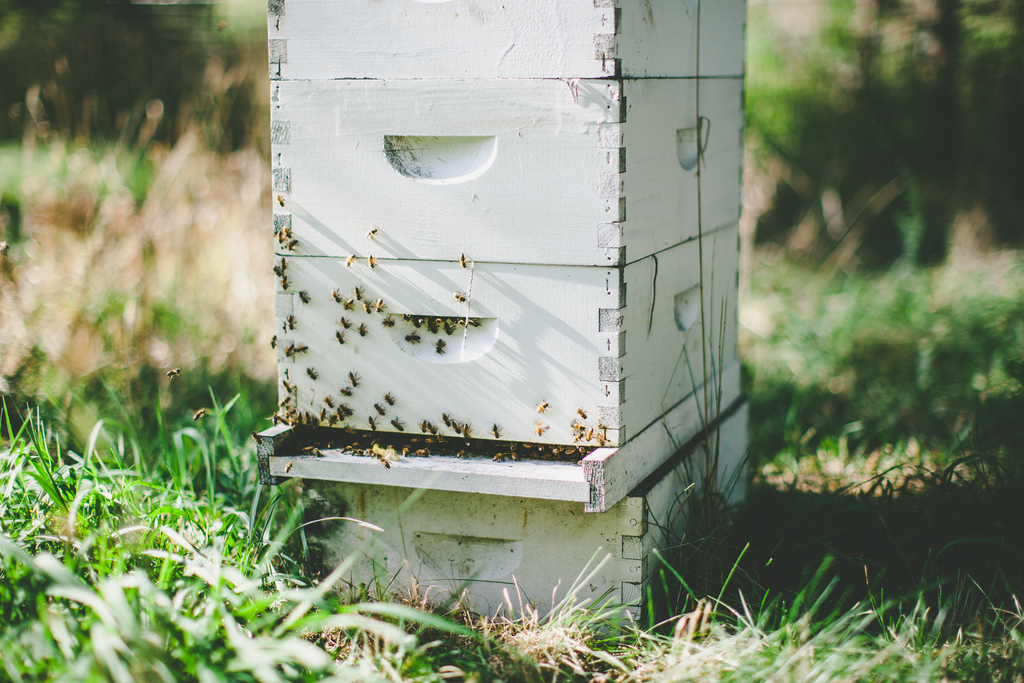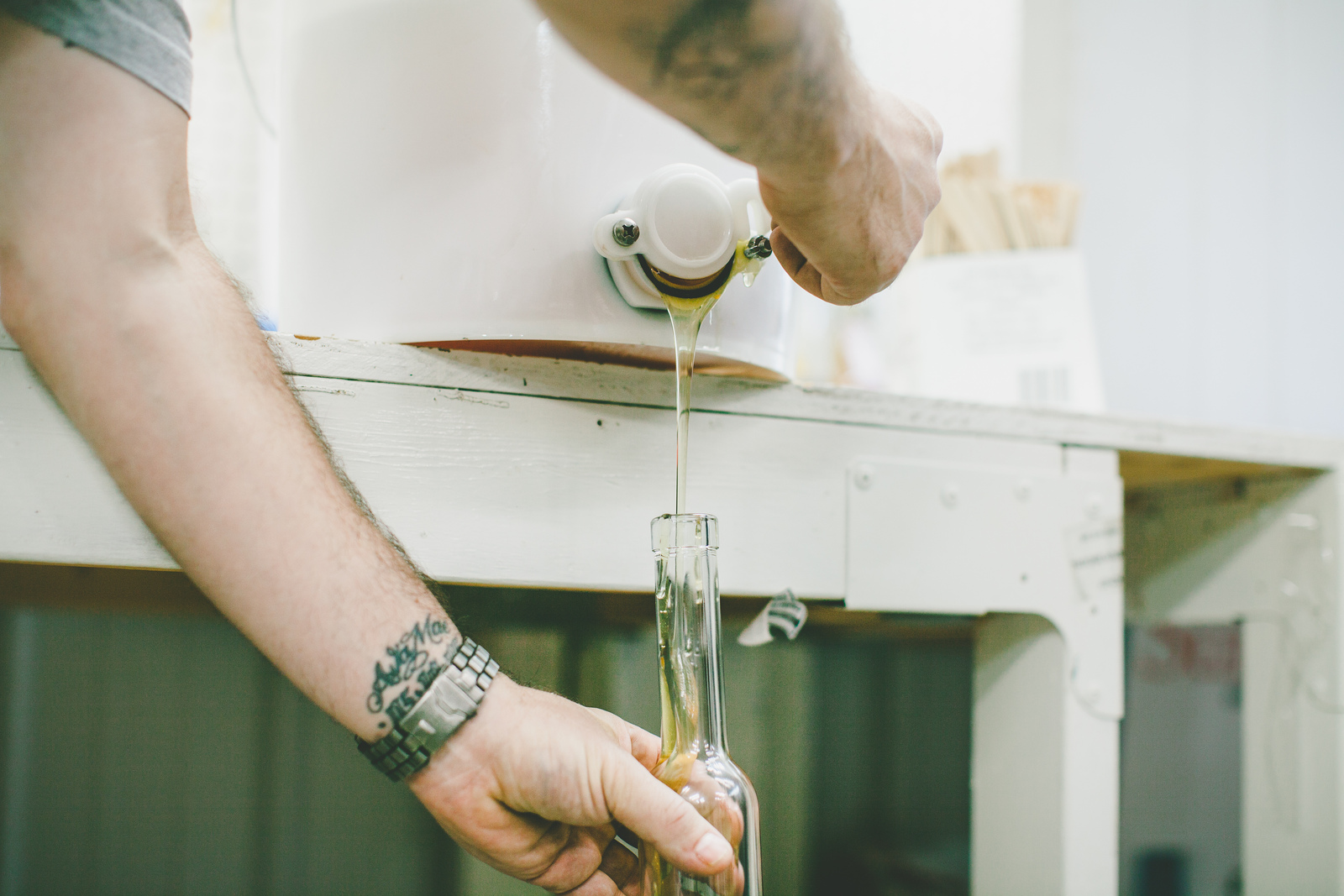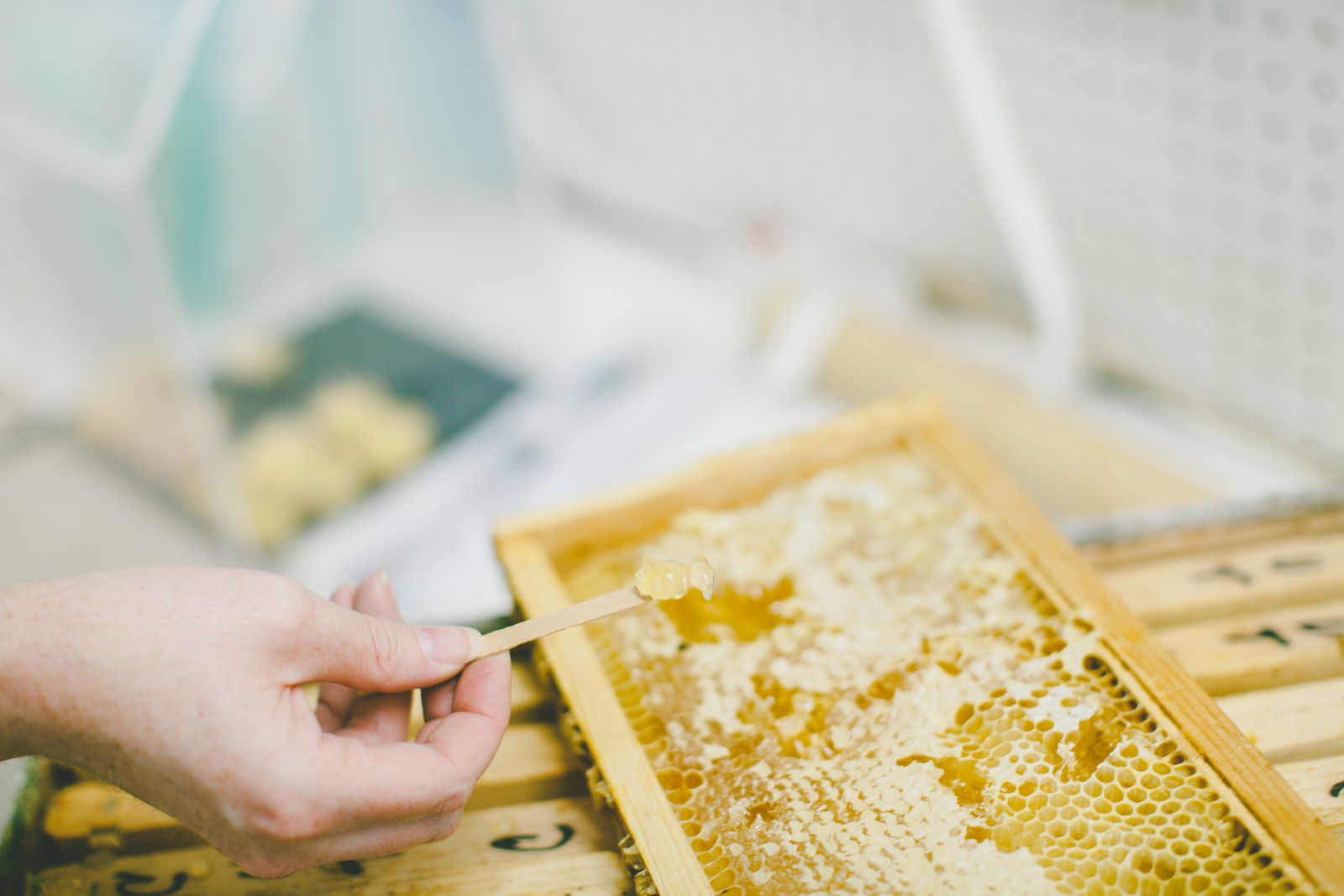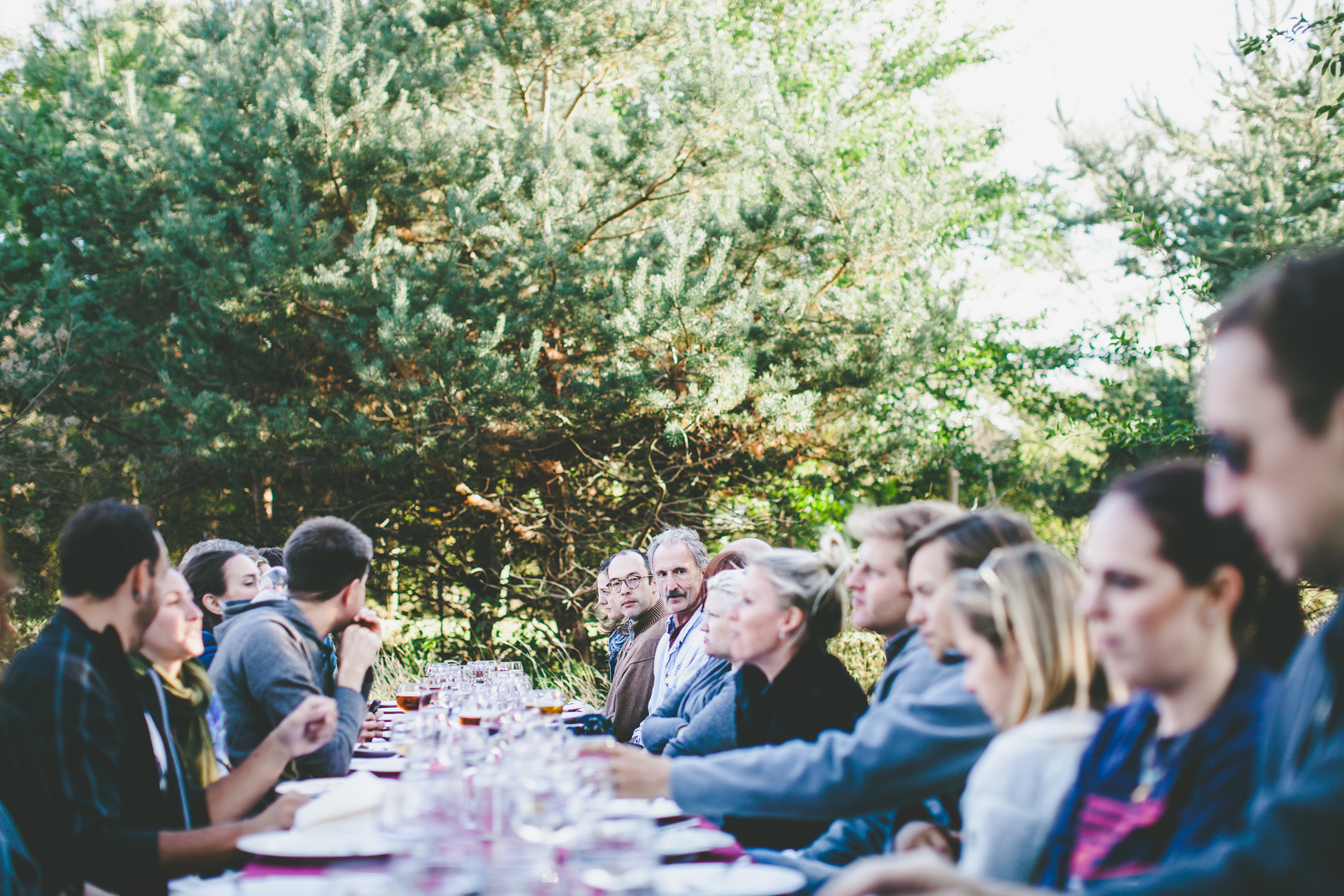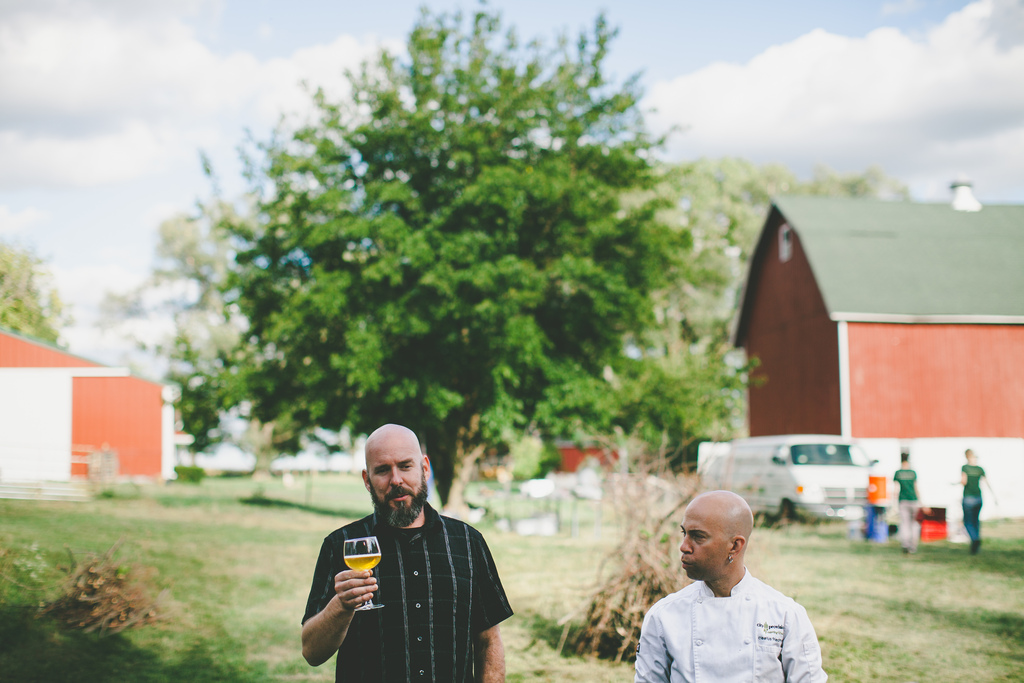It's easy to forget, living in Chicago's urban environment, how closely surrounded we are by nature. We have lake Michigan, to be sure. But beyond our city's borders and brief green-belt, things get a little...unremarkable. Unlike Portland or San Francisco, our extended landscape isn't filled with mountains and canyons, deep forests and infinite oceans, sparse deserts, volcanoes and wildlife. Illinois is a modest landscape compared to these.
But something we've always had here is a sense of serentiy in the prairie. The flat, open areas of wildflower, sparse trees and barely hidden waterways that inspire delicate thoughts. These prairies hugged the short and wide, manor-style homes of Frank Loyd Wright. And they cultivated a culture of collaboration and sharing among communities seperated only by their fields rather than ridges and valleys.
Cleetus Friedman of City Provisions knows this. And each year, he gathers a group of 30 or so and leads them into the Illinois prairie for his award-winning farm dinner series at Heritage Prairie farms in Elburn, IL, about an hour and a half from his Ravenswood neighborhood in Chicago. As an urban deli, Cleetus is contantly creating a connection between the farmers and craftsmen that he works with to create the products he sells, and share them with his city-bound audiences. And three times a year, he brings these worlds together in the reverse — by taking his customers to the source. This September, I joined him for the final dinner in the series.
The dinner at Heritage Prairie is a collaboration with numerous producers, inlcuding Doug Hurst of Metropolitan Brewing just up the street from Cleetus' deli, Michael Keller of Templeton Rye and Bronwyn Weaver of Heritage Prairie. After loading onto the bus, the brewery itself was our first stop. Doug's small Ravenswood-based brewery is one of Chicago's founding fathers of craft, focused on steady, sustainable growth. He produces lagers, a category a bit off the map for new micro breweries, even as lagers start making a comeback and craft geeks turn towards sessionable beers once again.
Each year for the farm dinner, Doug and Cleetus collaborate on a barrel aged beer, called Carbuerator, aged in a Templetone Rye barrel. The origination story goes somehting like this: After the first Metro/City Provisions farm dinner, Cleetus said "Doug, let's make a beer together!" Doug said sure. Templeton gave Cleetus a barrel just for the hell of it. Cleetus calls Doug and says, "I have a barrel, let's use it!" Doug says sure. Cleetus says, "let's serve it at the deli!" Doug says "you don't have a tap." Cleetus gets a tap. The beer is served.
With Doug now on the bus, Michael Keller of Templeton Rye takes the stage, introducing us to the upstart whiskey brand and it's rich history. During prohibition, the farming community of Templeton, Iowa developed elaborate systems for undercutting the dry laws and producing their own whiskey. But they didn't produce the horrendous, sometimes poisonous batches of swill that many illegal stills did around the country. They produced what they called "the good stuff." A single family recipe survived in various forms, largely due to the exceptional secrecy of buried barrels, tight-lipped locals and an income based on rye production that lasts to this day. With a unique grain bill featureing over a 90% rye where legally producers can get away with just 51%, Templeton plays to its strengths in smoothness.
Michael passed around some fingers of the good stuff, and then set to mixing cocktails for us right on the bus, one at a time, and served them alongside Cleetus' appentizers. The backs of busses are notorious for questionable consumption, but in this case, with a pro mixing cocktails and a chef plating small bites, the action was definitely on the up-and-up.
The cityscape gave way to small towns, which gave way to open ground as we rolled up to the farm. The sun hits at a different slant out here, and the quiet breezes hushed our crowd for awhile. Until we saw sheep. Us city folk get a little giddy around sheep.
Michael set to work preparing more pre-dinner cocktails, mixing a peach tea, honey, sage and rye concoction that brought us all home to the ripe flavors of a farm. Heritage Prairie is home to a sizable apiary where hordes of honey bees call home. Bronwyn is the resident keeper, and collaborator with local chefs who want to help develop their own hives and reap the rewards of exceptional honey for their restaurants and shops. These partnerships, with the likes of Whole Foods, City Provisions, Big Bowl and others keep the apiary growing and sustianbale, even through the dry times like this summer.
Sitting around the apiary, buzzing with the comings and goings of the bees, Bronwyn explained the dynamic culture and delicate relationships that bees share with their farm environment. Every flower and bloom on the farm contributes to the flavor of the resulting honey. Clover honey from Wisconsin, for example, actually tends to taste like clover due to it's dominance in the bees' diet. Here at Heritage Prairie, the bees have a large variety of sources, but due to the summer drought this year, that range is limited, even supplemented by Bronwyn herself using a nutrient enriched sugar water to help feed the bees. This year, in fact, she's had to consolidate a number of the hives to keep them healthy.
Back in the shop, Bronwyn showed us how they extract wax and honey from the combs. The raw taste of honey was exceptional, with both a grit and a tackiness to its textrue. Each partner in the apiary comes here to fill their bottles, and take their share home to serve their customers with an exceptional product. Where most of what we get at the supermarket as "honey" is little more than surgar and syrup, pure honey, in its natural form, is a powerful food, even an antiseptic in some medical practices such as asthma treatment. But we were here for the taste, and to that end Cleetus filled a bottle to use in his dinner preparations. The entire menu would take advantage of ingredients from the farm.
In the middle of the field, the table was set for Cleetus and Dougs' special pairings. Alongside farm-fresh heirloom tomatoes, eggplant, peppers and other flavor-packed vegetables, Doug served his well-known portfolio of lagers, including one of my all-time favorites, the Krankshaft Kolsch with its refreshing zip. It pairs perfectly with some of the spicier dishes, and the marinated vegetables and cheese.
Things got serious when Cleetus brought out the smoked brisket covered in bitter, peppery greens. That's when Doug poured his first-ever Octoberfest, known as Afterburner. As a sweeter Marzen brew, it was heavier than his others, with more viscosity that melded beautifully with the brisket's fatty proteins. It was a well-positioned food beer for the outing. And with a nip in the air, it kept us cozy. And finally, alongside some of the best cheesecake I've ever tasted, with a spoonful of honey dripping down the sides, Cleetus, Doug and Michael served the yearly collaboration — Carburetor, a rye dopplebock aged in a Templeton whiskey barrel, celebrating the inspiration of the team's first brew. Such a limited batch of this is brewed, literally one barrel, that every taste is precious.
With full bellies and full glasses, we gathered around the bonfire to watch the sun fully set and the farm quiet down. The sheep no longer bleating, the bees no longer buzzing, and conversations giving way to the occasional rustling of the darkening embers — Doug broke down his jockey box by the light of a few iPhones and we piled back onto the bus for the long ride home.
 Michael Kiser
Michael Kiser























